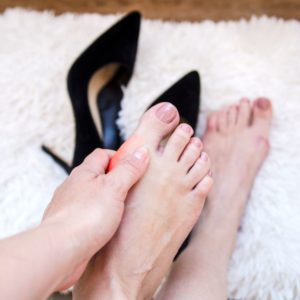 In crime movies or political thrillers there’s often a patsy, someone who takes the fall but didn’t actually do anything.
In crime movies or political thrillers there’s often a patsy, someone who takes the fall but didn’t actually do anything.
In the world of heel pain, the patsy would be the heel spur.
At Foot & Ankle Clinics of Utah, we treat heel pain from all sorts of causes with conservative treatments and occasionally surgery.
What is a heel spur?
A heel spur is a calcium deposit causing a bony protrusion on the bottom of the heel bone. Heel spurs can extend forward as much as half an inch, and they will show up on an x-ray.
What causes heel pain?
Although people with heel pain believe a heel spur has developed on the bottom of their foot and that is causing their pain, the reality says otherwise. Heel spurs are common, but they only cause pain in about 5 percent of people who have a visible heel spur on an x-ray.
More often, the pain is associated with plantar fasciitis, a painful inflammation of the fibrous band of connective tissue (plantar fascia) that runs along the bottom of the foot and connects the heel bone to the ball of the foot.
How is a heel spur treated?
With most heel pain, the spur isn’t actual problem. Unlike many causes of inflammation, rest won’t help with the pain of heel spurs and plantar fasciitis. That’s because after rest, when you arise you stretch and pull on the heel, elongating the plantar fascia, causing pain.
At Foot & Ankle Clinics of Utah, we usually advise patients to come see us if they have had heel pain for more than one month. We will work through conservative treatments first. These may include:
- A stretching exercise regimen
- Changing to different shoes
- Taping or strapping to rest the stressed muscles and tendons
- Shoe inserts or orthotics
- Physical therapy
- Night splints
- Anti-inflammatory medications (Tylenol, Advil, or Aleve)
- Corticosteroid injections
If you’re dealing with chronic heel pain, please give us a call at any of our five locations in American Fork (801), 763-3885; Payson, (801) 765-1718; Springville (801) 491-3668; and Orem (two locations, (801) 226-2421 or (801) 765-1718.

